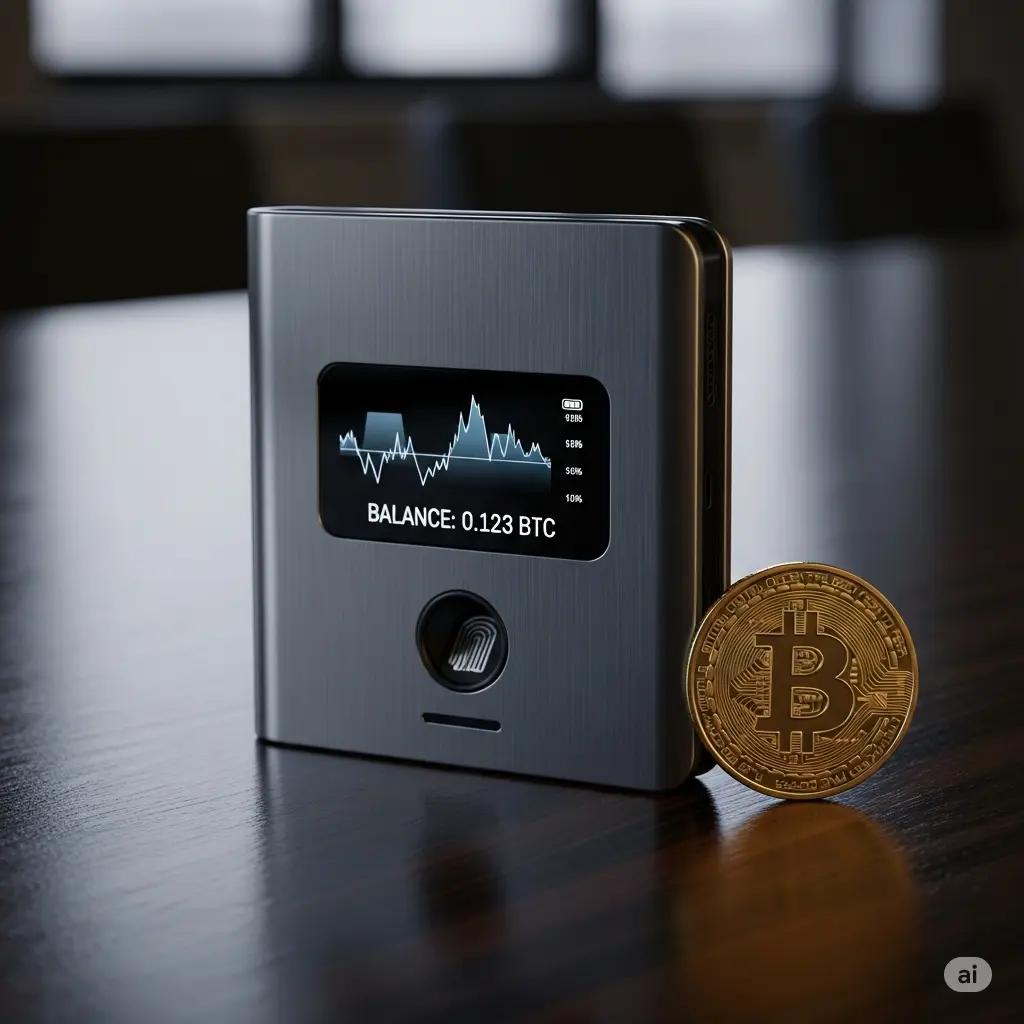Secure Crypto Wallet – Top‑Rated Safety for Crypto Enthusiasts
With the surge in cryptocurrency adoption, security has become a top priority for everyone—especially in light of recent hacks, phishing attacks, and lost funds. As prices fluctuate and more people explore decentralized finance (DeFi), Web3, NFTs, and staking, the need for a “Secure Crypto Wallet” is more urgent than ever.
Whether you’re a beginner or an intermediate crypto investor, this guide is your trusted resource for understanding and selecting the best crypto wallet in 2025. At Global Crypto Sports, we know how vital it is to keep your digital assets safe—so let’s dive in, learn the key concepts, and empower you to invest with confidence.

1. Key Concepts and Definitions
Before exploring wallets in depth, let’s clarify some fundamental terms:
- Blockchain: A decentralized digital ledger where transactions are recorded in a secure, immutable chain of blocks.
- DeFi (Decentralized Finance): Financial services like lending, borrowing, and trading built on blockchain networks—without central authorities.
- Web3: The next evolution of the internet, emphasizing decentralization, user control, and blockchain-based apps.
- Hot Wallet: A wallet connected to the internet—such as mobile or browser-based wallets—making it convenient for daily use but potentially more vulnerable.
- Cold Wallet / Hardware Wallet: An offline wallet (often a physical device) that stores private keys away from the web, offering exceptional security but less convenience.
- Seed Phrase: A human-readable backup (usually 12–24 words) that allows wallet recovery if your device is lost.
- Decentralized Wallet: A wallet where you control your private keys—no third party holds custody of your crypto.
- Wallet Backup: The process of securely storing your seed phrase, private keys, or recovery file to guard against loss or damage.
2. What Is a “Secure Crypto Wallet”?
A secure crypto wallet is designed to protect your cryptocurrency by keeping your private keys safe from hacks, loss, and unauthorized access. It must balance security, usability, and recovery. Let’s explore the two main types:
H2: Hot Wallets – Speed Meets Risk
H3: What Are Hot Wallets?
Hot wallets are software-based wallets connected to the internet. Examples include mobile apps (e.g., Trust Wallet, MetaMask mobile), desktop wallets (e.g., Exodus), and browser extensions. They’re ideal for daily transactions, DeFi activities, and quick access.
Benefits of Hot Wallets
- Convenience: Easy to use, quick transaction execution.
- Accessibility: Available on phones or browsers anytime.
- Integration: Often integrates with DeFi apps and Web3 platforms.
Risks of Hot Wallets
- Online vulnerability: Susceptible to phishing, malware, or device hacks.
- Dependence on device security: If your phone or computer is compromised, your funds can be at risk.
H2: Cold Wallets – Security First, Convenience Second
H3: What Are Cold Wallets?
Cold wallets, or hardware wallets, are physical devices (e.g., Ledger Nano X, Trezor Model T) that keep your private keys offline. They’re extremely secure, especially for long-term storage.
Benefits of Cold Wallets
- Offline storage: Immune to online attacks.
- Robust security: PIN codes, device authentication.
- High trust: Ideal for holding large amounts or long-term investments.
Drawbacks of Cold Wallets
- Less convenient: Requires connecting to a computer or device to initiate a transfer.
- Risk of loss or damage: If you lose the device and your seed phrase, access can be permanently lost.
- Initial cost: May cost $50–$150, though prices vary.
3. Comparison Table at a Glance
| Wallet Type | Examples | Security Level | Convenience | Best For |
|---|---|---|---|---|
| Hot Wallet | Trust Wallet, MetaMask | Medium | High | Daily use, DeFi, trading |
| Cold Wallet | Ledger Nano X, Trezor | Very High | Medium–Low | Long‑term storage, large holdings |
| Mobile Wallet | Coinomi, atomic wallet | Medium | High | On‑the‑go access |
| Decentralized Wallet | Coinomi, an atomic wallet | Varies | Varies | Full control over funds |
4. Real‑World Examples & Case Studies
H2: When Hot Wallets Falter
In 2022, a major decentralized exchange user’s hot wallet got compromised due to a phishing attack. The attacker mimicked the browser extension’s login prompt, capturing the seed phrase and draining hundreds of thousands in crypto. This incident underlines why crypto wallet security and seed phrase safekeeping are critical.
H2: Cold Wallet Success Story
A long-term crypto investor stored $500,000 worth of assets in a Ledger hardware wallet. A fire destroyed his home—but because his seed phrase was stored offline in a safe, he recovered all his funds safely when replacing the hardware device.
5. Pros and Cons, Benefits, and Risks
H2: Benefits of Using a Secure Crypto Wallet
- Protection from online threats: Cold wallets prevent malware and phishing.
- Control and ownership: With decentralized wallets, you retain complete control.
- Integration with DeFi and Web3: Especially hot wallets support direct interaction with apps.
- Peace of mind: Knowing you have a reliable wallet reduces stress in volatile markets.
H2: Potential Risks to Be Aware Of
- Seed phrase exposure: Writing it down publicly or storing it digitally without encryption risks theft.
- Phishing scams: Fake apps, websites, or messages that trick you into revealing private keys.
- Device failure or loss: Hardware devices may break or be misplaced.
- Software bugs: Even wallet apps may have vulnerabilities—keeping software updated is crucial.

6. Actionable Advice for Beginners & Intermediate Investors
Steps to Choose the Right Wallet
- Identify your use case:
- Do you trade frequently? A hot wallet may be ideal.
- Storing long-term? Consider a hardware (cold) wallet.
- Research reputable brands: Ledger, Trezor, Trust Wallet, MetaMask mobile, etc.
- Check for open‑source code: This increases trust and transparency.
- Read reviews and user feedback: See what the crypto community says about features, security, and ease of use.
- Set up backups immediately: Secure your seed phrase and store it offline in multiple safe locations.
- Use strong physical safeguards: Consider fireproof or waterproof storage for your seed phrase.
- Enable additional security: PINs, passphrases, 2FA, and firmware updates.
Best Practices for Secure Usage
- Never share your seed phrase: No one, ever, under any pretence.
- Verify websites and apps: Type URLs manually; avoid clicking random links.
- Test recovery: After setting up, use a test amount to ensure you can recover with your seed phrase.
- Diversify storage: Consider splitting holdings across cold and hot wallets.
- Stay updated: Watch for firmware or security updates—apply them promptly.
- Use encrypted backups: If digitally stored, ensure strong encryption.
- Use passphrases: Many hardware wallets support adding an extra “hidden” passphrase on top of the seed phrase.
7. Frequently Asked Questions (FAQ)
Q1: What is the best crypto wallet 2025 for beginners?
Answer: It depends on your needs. For daily trading or DeFi, a hot wallet like MetaMask mobile or Trust Wallet is beginner-friendly. For long-term savings, cold wallets from Ledger or Trezor offer unmatched security.
Q2: What is the difference between a hot wallet and a cold wallet?
Answer: A hot wallet connects to the internet and is accessible for daily usage; a cold wallet is offline, providing enhanced security with less convenience.
Q3: How do I safely store my seed phrase?
Answer: Write it down on paper or metal and store it in at least two secure, fireproof, and waterproof locations—not digitally. Consider encrypting digital backups if necessary.
Q4: What is the crypto wallet security best practice?
Answer: Use hardware wallets for large holdings, avoid sharing sensitive information, enable PINs/passphrases, keep software updated, and test your backups.
Q5: Can I recover funds if I lose my device?
Answer: Yes—if you have your seed phrase (or recovery phrase), you can restore your wallet on a new device. Without it, recovery is nearly impossible.
Q6: What is a decentralized wallet, and why should I consider it?
Answer: A decentralized wallet gives you access to your private keys—no central entity can control your funds. This aligns with the ethos of Web3 and offers maximum self-custody, but also maximum responsibility.
Q7: What’s the difference between a hardware wallet and a mobile wallet?
Answer: A hardware wallet (cold wallet) is a physical device offering offline protection. A mobile wallet (hot wallet) is software on your phone, great for convenience but more exposed to online risks.
8. Conclusion: Secure Crypto Wallet
In the fast‑evolving world of cryptocurrency, securing your assets isn’t optional—it’s essential. Whether you’re exploring DeFi, Web3, NFTs, or simply HODLing for the long term, having a Secure Crypto Wallet at your side can protect you against hacks, scams, and loss.
- If you’re just starting, try a trusted hot wallet and practice with small amounts.
- If you’re storing significant value, invest in a reputable hardware wallet and secure your seed phrase.
- Always prioritize crypto wallet security, stay vigilant against phishing, and back up your wallet properly.
Stay informed with Global Crypto Sports, keep learning, and invest smartly. If you found value in this guide, share it with fellow crypto enthusiasts, subscribe for updates, and **keep your assets safe, secure, and ready for tomorrow’s opportunities!
